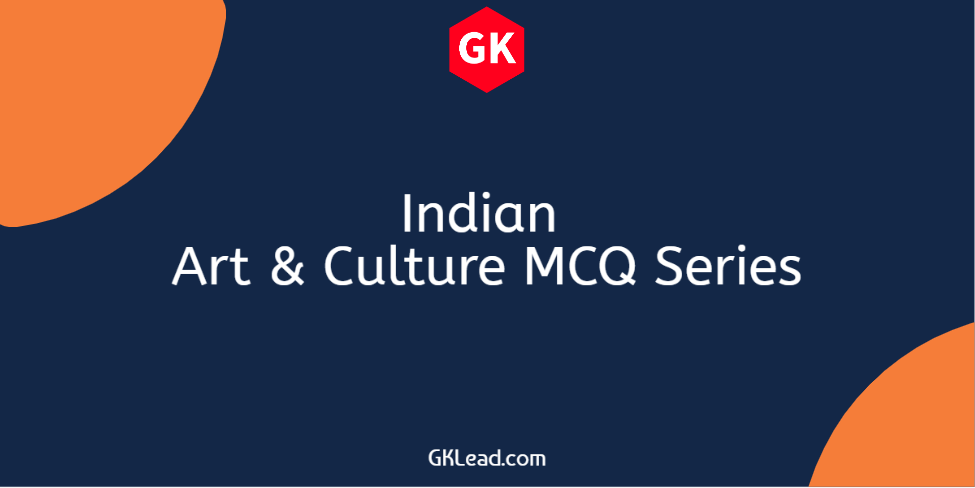Indian Art & Culture MCQ Set-3
Indian Philosophy MCQ for competitive examinations in India such as UPSC, SSC CGL, SSC CHSL, NDA, State PSC, Police recruitment and various government job recruitment examination by the Government of India, PSUs and the state Governments in India.
Q.1 Ajivika, one of the heterodox school of Indian philosophy was founded by:
A. Siddhartha Gautama
B. Makkhali Gosala
C. Brihaspati
D. None of these
Answer: B. Makkhali Gosala
Note: Makkhali Gosala, the founder of Ajivika, one of the heterodox school of Indian philosophy was an ascetic teacher of ancient India. He was a contemporary of Siddhartha Gautama, the founder of Buddhism, and of Mahavira, the last and 24th Tirthankara of Jainism.
Q.2 Which of the following orthodox school of Indian Philosophy is credited for development of Indian Logic?
A. Nyaya
B. Samkhya
C. Yoga
D. Vedanta
Answer: A. Nyaya
Note: Nyaya school’s most significant contributions to Indian philosophy was systematic development of the theory of logic, methodology, and its treatises on epistemology.
Q.3 Which among the following Tirthankara of Jainism was contemporary to Siddhartha Gautma?
A. Mahavira
B. Parshvanatha
C. Neminatha
D. Munisuvrata
Answer: A. Mahavira
Note: Mahavira, also known as Vardhamana was the 24th Tirthankara of Jainism. He was the spiritual successor of the 23rd Tirthankara Parshvanatha.
Q.4 Which of the following orthodox school of Indian Philosophy focuses on interpreting the philosophy of Upanishads, particularly metaphysics related to Atman and Brahman?
A. Nyaya
B. Vedanta
C. Samkhya
D. Yoga
Answer: Vedanta
Note: Vedanta means end of the Vedas. Vedanta reflects ideas that emerged from, or were aligned with, the speculations and philosophies contained in the Upanishads, specifically, knowledge and liberation.
Q.5 Who among the following founded the Dvaita Vedanta, a sub-school under the Vedanta school of Indian Philosophy?
A. Madhvacharya
B. Adi Shankaracharya
C. Gaudapada
D. Vallabha
Answer: A. Madhvacharya
Note: Dvaita Vedanta sub-school under the Vedanta was founded by the 13th-century scholar Madhvacharya.
Q.6 Which of the following is the oldest Indian philosophy that separates body(matter) from the soul (consciousness) completely?
A. Buddhist Philosophy
B. Jain Philosophy
C. Nyaya Philosophy
D. Samkhya Philosophy
Answer: B. Jain Philosophy
Q.7 Which of the following tradition of Buddhism held that only consciousness exists?
A. Yogachara
B. Vajrayana
C. Madhyamaka
D. Dignaga-Dharmakirti
Answer: A. Yogachra
Note: Yogachara is an influential tradition of Buddhist philosophy and psychology emphasizing the study of cognition, perception, and consciousness through the interior lens of meditative and yogic practices. It is also variously termed Vijñānavāda (the doctrine of consciousness).
Q.8 Who among the following Advaita Vedanta scholar is the author of the Book Mandukya Karika?
A. Gaudapada
B. Adi Shankara
C. Swami Vivekananda
D. None of these
Answer: A. Gaudapada
Note: Pre Adi Shankara Advaita Vedanta scholar Gaudapada was the author or compiler of the Māṇḍukya Kārikā, also known as Gaudapada Karika.
Q.9 Who among the following founded the Vaisheshika school of Indian Philospphy?
A. Kapila
B. Adi Shankara
C. Gaudapada
D. Kanada Kashyapa
Answer: D. Kanada Kashyapa
Note: Kanada Kashyapa also known as Kashyapa, Ulūka, Kananda and Kanabhuk, was an ancient Indian natural scientist and philosopher who founded the Vaisheshika school of Indian philosophy that also represents the earliest Indian physics.
Q.10 In Buddhism, how many noble truths are present for the spiritually worthy one?
A. 2
B. 3
C. 4
D. 5
Answer: C. 4
Note: In Buddhism, the four Arya satyas are “the truths of the Noble Ones”, the truths or realities for the “spiritually worthy ones” are
i. Dukkha- suffering, incapable of satisfying, painful
ii. Samudaya- origin, arising
iii. Nirodha- cessation, ending
iv. Magga- path, Noble Eightfold Path
List of Indian Art & Culture MCQ sets from GKLead.com
- Indian Art & Culture MCQ Set-1
- Indian Art & Culture MCQ Set-2
- Indian Art & Culture MCQ Set-3
- Indian Art & Culture MCQ Set-4
- Indian Art & Culture MCQ Set-5
- Indian Art & Culture MCQ Set-6
- Indian Art & Culture MCQ Set-7
- Indian Art & Culture MCQ Set-8
- Indian Art & Culture MCQ Set-9
- Indian Art & Culture MCQ Set-10
- Indian Art & Culture MCQ Set-11
- Indian Art & Culture MCQ Set-12
- Indian Art & Culture MCQ Set-13
- Indian Art & Culture MCQ Set-14
- Indian Art & Culture MCQ Set-15
- Indian Art & Culture MCQ Set-16
- Indian Art & Culture MCQ Set-17
- Indian Art & Culture MCQ Set-18
- Indian Art & Culture MCQ Set-19
- Indian Art & Culture MCQ Set-20

